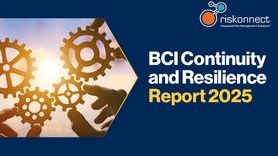BCI research finds COVID-19 has changed the perception of organizational resilience

Business Continuity professionals are aware and understand the importance of the concept of organizational resilience. However, this does not apply to everyone within an organization. Through the years and from different pieces of research, we have reported how difficult it is to engage top management in understanding and consequently implement organizational resilience.
According to ISO 22316:2017 organizational resilience is “the ability of an organization to absorb and adapt in a changing environment to enable it to deliver its objectives and to survive and prosper[1]”. Research has shown that if an organization develops its crisis management structure around the principals of organizational resilience, it is better placed to survive a crisis.
According to the latest BCI Crisis Management Report - sponsored by International SOS – the recent COVID-19 pandemic has changed the perception of organizational resilience at top management level. Indeed, results show that there has been an increase in the level of education on resilience issues as well as an increased appreciation of the importance of organizational resilience.
Another interesting result from the report is how top management engagement and appreciation of crisis management has improved as a result of the pandemic. In some organizations, the pandemic has pushed the level of top management engagement down to exercises; and professionals are using the momentum to ensure that this newfound appreciation remains in the long run even after the pandemic is over.
In the past, as reported by several BCI research report such as the Horizon Scan Report, many professionals highlighted that ‘siloing’ of information, lack of collaboration, and an underappreciation of the importance of organizational resilience has led to crises being poorly managed. In some organizations it was also questioned who the crisis management champion should be - and according to some, the CEO was not suitable for this role.
In terms of top management involvement during a crisis, the BCI Crisis Management Report showed mixed results. While some organizations reported varying degrees of input and trust from senior management; others reported that management had a high degree of trust in their tactical and operational teams and only requested to be informed of decisions made. In some cases, senior management took on the decision-making role due to incumbent working practices and/or a lack of trust in the ability of individuals and departments to make their own decisions.
How organizational resilience is perceived by top management – and how it is embedded within a company’s culture - is a crucial factor in how effective its crisis response will be in the face of a crisis. This encompasses different elements such as trust, collaboration, and communication. The BCI Crisis Management Report shows that teams’ ability to interact with other functions and “network” culture was one of the key factors that enabled their organization to endure the crisis effectively.
The BCI Crisis Management Report is now available to download in the BCI Knowledge Library, follow the link below to get your PDF copy.
[1] ISO Technical Committee ISO TC/292 Security and Resilience (2017). ‘Security and resilience — Organizational resilience’. Available at: https://www.iso.org/obp/ui#iso:std:iso:22316:ed-1:v1:en (accessed 14 July 2021)









































